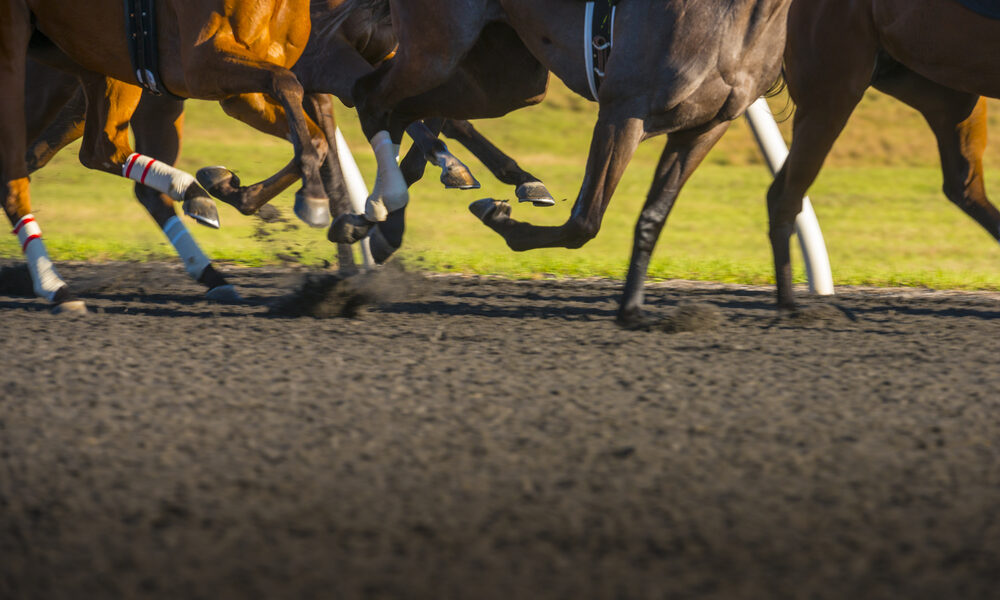Despite a plea from horse trainer Ricardo Castillo, the Nevada Gaming Commission upheld a $100,000 fine and banned him from racing for 15 years after four of his winning horses tested positive for methamphetamine at the Elko County Fairgrounds in the summer of 2024.
The Commission voted 5-0 to reaffirm the punishment from the Nevada Gaming Control Board handed down over the summer. The Board only heard the case, because Castillo appealed a ruling by the Board of Stewards that he be barred from reapplying for his license for four years and fined $4,000, the maximum punishment allowed.
The four horses involved, Bnb Hasta La Luna, Famous Prizes, Dr. B, and Bnb Lightning McQueen, were combined in $17,700 in purses and were disqualified from the winnings.
Castillo’s attorney Jennifer Gaynor said it’s important to protect the horses and gaming industry, but that level of fine wasn’t necessary and should match previous punishments. She said she wasn’t retained by Castillo until the Commission hearing, didn’t get a chance to respond previously in the case, and isn’t allowed to present any new evidence.
“There has never been a fine of this magnitude in a horse racing case in Nevada or anywhere else we could find,” Gaynor said. “The standard fines and suspensions are in the $1,000 and 30-to 180-day range.”
Gaynor said Castillo has an otherwise clean record and no prior history of failed tests. All of the horses are alive and well, she added. The Nevada sanctions would also be honored by other states and that would take away his livelihood for the next 15 years and require him to pursue work in other industries.
“You’re talking about lifetime offenses and all of these occurred in the same week at the same time, and Mr. Castillo didn’t receive word that there were dirty tests until months afterwards. I believe the offender should have a chance to learn from it and grow or not grow. That is why the second or third offense would be so much steeper.”
Gaynor said there was no evidence of any illegal betting partners on those races, which had wagering pools of $2,231, $3,912, $2,947, and fourth race was $4,223. Castillo only made $1,500 a month as a trainer and the winnings as a part owner of the four horses would have been $6,500 before expenses. “If Mr. Castillo isn’t allowed to work as a trainer, he doesn’t know how he will be able to pay the fine.”
In a brief statement, Castillo asked for mercy and told the Commission he’s never had a failed drug test before these and afterwards. He said he’s never made a lot of money in the industry, which he called a “personal passion.” He said he loves horses and racing.
“Unless you are at the highest level, it’s not a big-money game,” Castillo said. “A trainer that makes $1,500 a month in salary and prize money, which was never a lot.”
In backing the punishment, Commission member Abbi Silver said Castillo’s previous claim of cross contamination was brought up as a defense in the initial hearing with the stewards, and the Board rejected that finding and didn’t see it as credible.
Silver also addressed Gaynor’s stance that Castillo is being punished more harshly than trainer Alvaro Torres, who earlier this year was prevented from seeking a license for five years and fined $5,000 after his horse tested positive for cocaine. She said it makes a difference that more horses were involved in this case. “At the end of the day, Mr. Castillo did make money from these purses, and I know the defense has said it’s only $6,500, but it’s $6,500 (he stood to receive if purses were paid out) made being responsible for the horses.”
Commissioner Rosa Solis-Rainey said she shares the concerns of the Board, given the gravity over the integrity of wagering and the safety of horses and jockeys in the field.
“I have zero problem with the 15 years,” said Commission Chair Jennifer Togliatti. “It didn’t happen, and everyone is lucky it didn’t happen but somebody could have been seriously injured or killed. You wouldn’t be here, because you might be facing a criminal proceeding and wouldn’t be saying a thing.” Togliatti said they have to consider a deterrence and the $100,000 factors into that even if the client doesn’t have the ability to pay.
“I know you only work in the rural areas of Nevada and you don’t go to these bigger races,” Togliatti said. “At the end of the day, you have four drugged horses in different races with certain testimony about the test results.”




